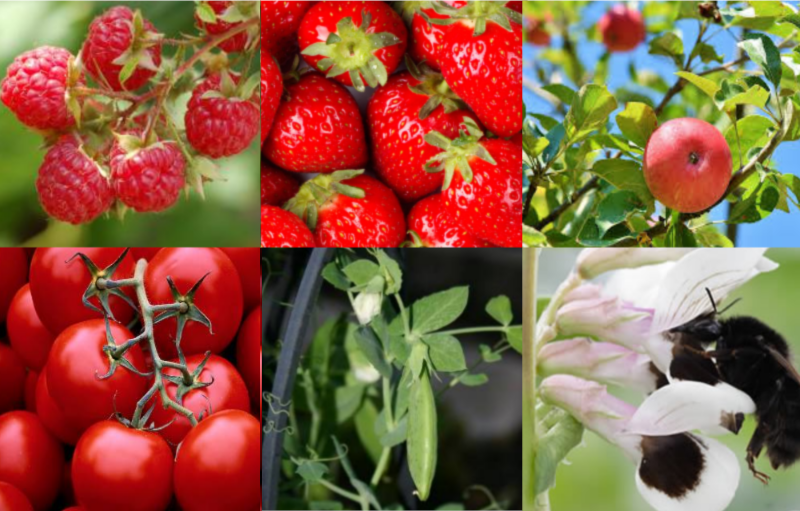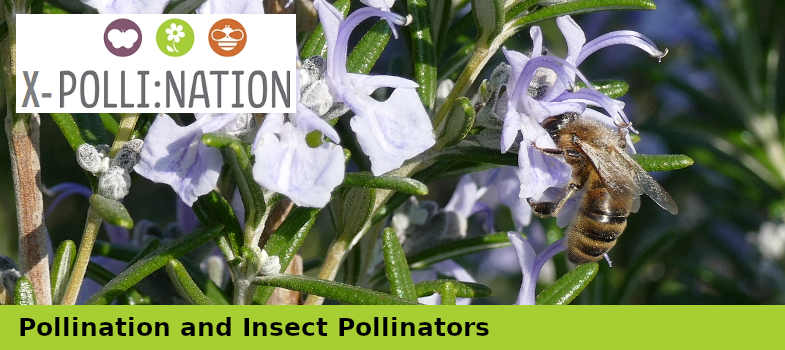Learning about UK Pollinators
2. Pollination in the UK
Pollinators are animals that move pollen from one flower to another and in doing so enable plants to make seeds and reproduce. Pollinators come in many forms across the world (including birds, bats and lizards), but in the UK the majority of pollination is done via wind or by the 1500 species of pollinating insects. These insects include bees, butterflies, flies and beetles.
Around 80% of British plants are pollinated by insects. This process produces the wide variety of plants we see, feeds our wildlife and provides much of the food that we eat. Pollinators are important for our economy; the loss of pollinators could cost the UK around £690 million a year in lost crops alone.

Here are just some of the crops pollinated by bumblebees - raspberries, strawberries, apples, tomatoes, peas and beans:

